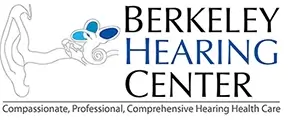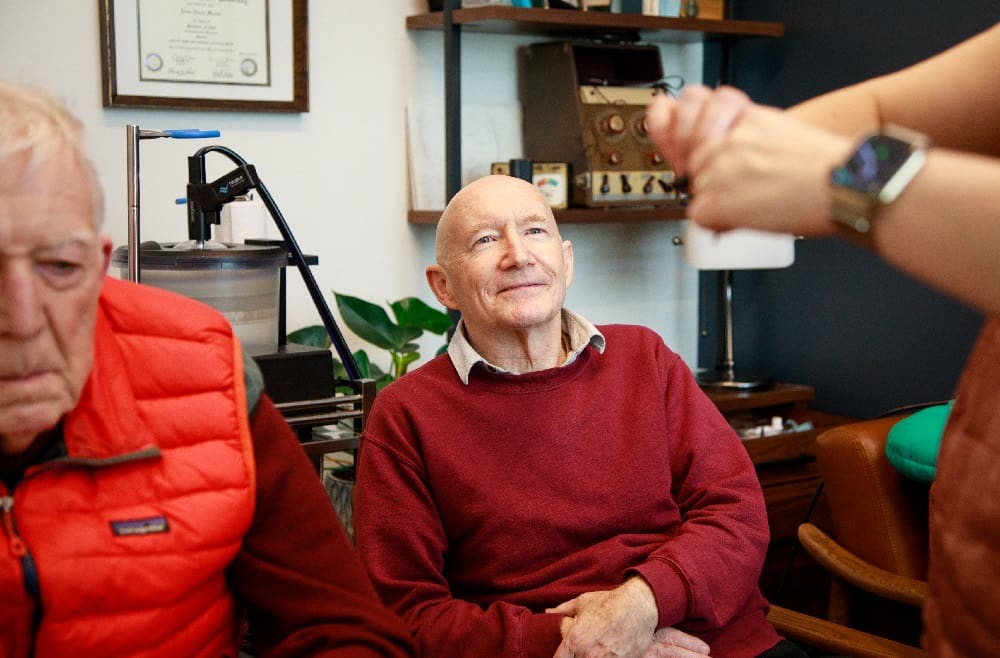2024-02-20
Jonathan Lipschutz Audiologist, M.S., F-AAA, Co-Owner
Last month’s article on gene therapy for hearing loss was ‘ripped from the headlines’. Auracast, though less ‘flashy’, will be no less of a game changer. Auracast is a new type of Bluetooth technology utilizing the newest form of Bluetooth (released in July 2022), known as Bluetooth Low Energy (LE) Audio. Like all Bluetooth standards, LE Audio was developed by the Bluetooth Special Interest Group (SIG). Headquartered in Kirkland Washington, the Bluetooth SIG was created in 1998 by 4 companies–Ericsson, Intel, Nokia and Toshiba, with Microsoft joining the following year. Interestingly, Apple only joined in 2015, immediately after the first MFi (made for iPhone) hearing aids came out.
According to its mission statement, “We believe in a world where everything and everyone that wants to connect, should be able to do so in a simple, secure, and wireless way.” It’s a not-for-profit consortium/collaboration of literally tens of thousands of technology companies that oversees the development of Bluetooth standards and licensing of Bluetooth technologies and trademarks to manufacturers.
Why is it called “Bluetooth”? The name was actually proposed as a temporary code name for the project. It was suggested by Jim Kardach from Intel after hearing stories of the 10th century Danish King Harald “Bluetooth” Gormsson, who was famous for uniting the disparate Danish tribes into a single kingdom.
What is Bluetooth? Very simply, Bluetooth is a way to wirelessly connect one device to another utilizing ultra high frequency (UHF) radio waves to exchange information between the devices, such as a smartphone and hearing aids as an example from my world. For those confused between Bluetooth and Wifi, whereas Bluetooth connects one device to another, WiFi connects a device to the internet (you’re welcome).
So how will LE Audio and Auracast be a game changer, particularly when it comes to hearing aid users? Until Auracast, we did not have that ‘simple, secure and wireless way’ to connect hearing aids to all of the technologies we use every day. With LE Audio and Auracast, hearing aid users will not only be able to easily stream high quality audio from their personal devices (phones, laptops, TVs), but also at theaters, concert venues, lecture halls/classrooms, museums, airports, etc. Auracast is literally the next-generation assistive listening system. But Auracast will not only be for people with hearing loss. In fact, global adoption of Auracast will largely be driven by demand from people without loss.
Okay, Auracast will be awesome, though there’s a ‘but’ coming, right? Well, yes. Though both gene therapy and Auracast will eventually be game changers, the operative word is “eventually”. LE Audio-enable devices are only now being produced, though ramping up quickly, so Auracast won’t likely be commonplace for several years at a minimum. Some predict it may take up to 10 years before Auracast becomes ubiquitous. But According to a blog post on Bluetooth.com, "by 2027, there will be more than three billion LE Audio-enabled devices on the market, which will, in turn, incentivize nearly 2.5 million public venues to deploy Auracast broadcast transmitters globally by 2030".
According to the Bluetooth SIG/ABiResearch, LE Audio “will make it easier to develop lower cost, lower complexity, non-proprietary products that have better synchronization, lower latency, improved power consumption, and that can enable new capabilities such as Auracast™ broadcast audio and assistive listening use cases in public venues.” Can’t happen soon enough!
Please continue to love your community by thinking of those around you, and please always support our local community businesses!
https://berkeleyhearing.com/wp-content/uploads/2024/11/Need-hearing-help.jpg
Jonathan Lipschutz Audiologist, M.S., F-AAA, Co-Owner






